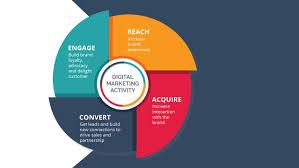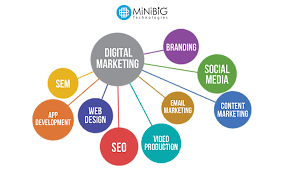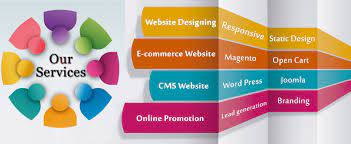The Power of Brand Marketing
In today’s competitive business landscape, brand marketing plays a crucial role in shaping the success and longevity of a company. Brand marketing goes beyond just promoting products or services; it is about creating a strong and memorable identity that resonates with consumers on a deeper level.
A well-defined brand can set a company apart from its competitors, build trust with customers, and ultimately drive loyalty and advocacy. By consistently delivering on its brand promise and values, a company can cultivate a loyal customer base that becomes its biggest advocates.
Effective brand marketing involves crafting a clear brand message that communicates the unique value proposition of the company. This message should be conveyed through various channels, including advertising, social media, PR, and customer interactions. Consistency is key in reinforcing the brand image and creating a cohesive brand experience for consumers.
Brand marketing also extends to visual elements such as logos, colour schemes, and typography that form the visual identity of the brand. These elements help create instant recognition and association with the brand, making it easier for consumers to identify and connect with the company.
Moreover, successful brand marketing goes beyond acquiring new customers; it focuses on building lasting relationships with existing customers. By engaging with customers through personalised experiences and meaningful interactions, companies can foster loyalty and encourage repeat business.
Ultimately, brand marketing is about creating an emotional connection with consumers that goes beyond just transactions. It is about building a community of loyal followers who believe in the values and vision of the brand. In today’s digital age, where competition is fierce and consumer attention is fleeting, investing in strong brand marketing is essential for companies looking to stand out and thrive in the market.
Eight Essential Tips for Effective Brand Marketing
- Understand your target audience thoroughly.
- Develop a strong brand identity and message.
- Consistently communicate your brand values and story.
- Utilise multiple marketing channels to reach your audience.
- Create engaging and shareable content.
- Build relationships with influencers in your industry.
- Monitor and analyse the performance of your marketing efforts.
- Adapt and evolve your brand strategy based on feedback and market trends.
Understand your target audience thoroughly.
To succeed in brand marketing, it is crucial to thoroughly understand your target audience. By delving deep into the demographics, preferences, behaviours, and needs of your audience, you can tailor your brand message and marketing strategies to resonate with them effectively. This understanding allows you to create personalised and relevant experiences that connect with your audience on a meaningful level, ultimately building trust and loyalty towards your brand. By putting in the effort to truly know and empathise with your target audience, you can craft compelling brand narratives that drive engagement and long-term relationships with customers.
Develop a strong brand identity and message.
Developing a strong brand identity and message is a fundamental tip in brand marketing. A cohesive brand identity, including elements such as logos, colour schemes, and typography, helps to create instant recognition and build trust with consumers. By defining a clear and compelling brand message that communicates the unique value proposition of the company, businesses can differentiate themselves from competitors and establish a lasting connection with their target audience. Consistency in conveying this message across all marketing channels is key to reinforcing the brand image and creating a memorable brand experience for customers.
Consistently communicate your brand values and story.
To establish a strong brand presence and connect with consumers on a deeper level, it is essential to consistently communicate your brand values and story. By articulating the core beliefs and mission behind your brand, you can build trust and loyalty among your target audience. Sharing your brand story in a compelling and authentic manner helps create an emotional connection with consumers, making your brand more relatable and memorable. Consistent communication of your brand values and narrative across all touchpoints reinforces the identity of your brand and fosters long-term relationships with customers.
Utilise multiple marketing channels to reach your audience.
To maximise the impact of your brand marketing efforts, it is essential to utilise multiple marketing channels to reach your target audience effectively. By diversifying your approach and engaging with consumers across various platforms such as social media, email marketing, content marketing, and traditional advertising channels, you can increase brand visibility and connect with potential customers at different touchpoints. This multi-channel strategy allows you to reach a wider audience, reinforce your brand message consistently, and create a more integrated and cohesive brand experience that resonates with your target market.
Create engaging and shareable content.
Creating engaging and shareable content is a fundamental tip in brand marketing. By crafting content that resonates with your target audience, evokes emotions, and provides value, you can capture their attention and encourage them to share it with others. Engaging content not only helps in building brand awareness but also fosters a sense of community around your brand. By focusing on creating content that is informative, entertaining, or inspiring, you can connect with your audience on a deeper level and encourage them to become advocates for your brand, amplifying your reach and impact in the digital landscape.
Build relationships with influencers in your industry.
Building relationships with influencers in your industry can be a powerful strategy in brand marketing. By partnering with influencers who have a strong following and credibility in your niche, you can leverage their influence to reach a wider audience and enhance brand visibility. Collaborating with influencers allows you to tap into their engaged community and build trust with potential customers through authentic recommendations and endorsements. This approach not only helps increase brand awareness but also enables you to establish meaningful connections with your target market, ultimately driving brand loyalty and long-term success.
Monitor and analyse the performance of your marketing efforts.
Monitoring and analysing the performance of your marketing efforts is a critical aspect of brand marketing. By tracking key metrics such as engagement rates, conversion rates, and ROI, you can gain valuable insights into the effectiveness of your strategies and campaigns. This data-driven approach allows you to identify what is working well and what areas may need improvement, enabling you to make informed decisions to optimise your brand marketing efforts for better results. Regular monitoring and analysis help you stay agile in responding to market trends and consumer behaviour, ensuring that your brand remains relevant and competitive in the ever-evolving landscape of digital marketing.
Adapt and evolve your brand strategy based on feedback and market trends.
Adapting and evolving your brand strategy based on feedback and market trends is crucial in the ever-changing landscape of brand marketing. By actively listening to customer feedback and staying informed about market trends, you can make informed decisions that keep your brand relevant and competitive. Embracing change and being flexible in your approach allows you to continuously refine your brand strategy, ensuring that it resonates with your target audience and effectively communicates your unique value proposition. This iterative process of adaptation not only helps you stay ahead of the curve but also strengthens the connection between your brand and its consumers, fostering long-term loyalty and success.









